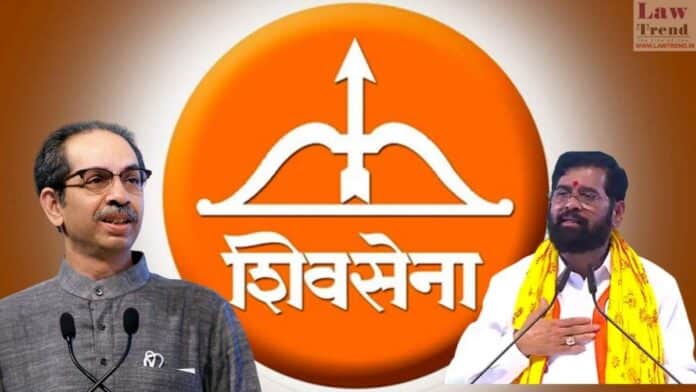The Supreme Court said on Thursday once a government is democratically elected in accordance with law, there is a presumption that it enjoys the confidence of the House and there must exist some objective material to dislodge this presumption.
In a unanimous verdict on a batch of pleas related to the political crisis that led to the fall of the Uddhav Thackeray government in Maharashtra following a revolt by Shiv Sena faction led by Eknath Shinde, the apex court said the communication expressing discontent among some MLAs is not sufficient for the governor to call for a floor test.
“The Governor ought to apply his mind to the communication (or any other material) before him to assess whether the government seemed to have lost the confidence of the House. We use the term ‘opinion’ to mean satisfaction based on objective criteria as to whether he possessed relevant material, and not to mean the subjective satisfaction of the Governor,” a five-judge Constitution bench headed by Chief Justice D Y Chandrachud said.

“Once a government is democratically elected in accordance with law, there is a presumption that it enjoys the confidence of the House. There must exist some objective material to dislodge this presumption,” the bench, also comprising Justices M R Shah, Krishna Murari, Hima Kohli and P S Narasimha, said.
The top court held then Maharashtra Governor Bhagat Singh Koshyari was not justified in calling upon Thackeray to prove his majority on the floor of the House because he did not have reasons based on objective material before him to reach the conclusion that Thackeray had lost the confidence of the House.
“The Governor had no objective material on the basis of which he could doubt the confidence of the incumbent government. The resolution on which the Governor relied did not contain any indication that the MLAs wished to exit from the MVA government,” it said.
The bench noted that the governor constitutes an integral part of a State Legislature and the executive power of the State is vested in him.
The bench said to avert a no-confidence motion, the incumbent government may not advise the governor to convene a session of the Assembly, and the Speaker may adjourn the sitting of the House to prevent voting for granting leave to move a motion of no-confidence.
“If the Speaker and the Government attempt to circumvent a no-confidence motion, the Governor would be justified in exercising the power under Article 174 without the aid and advice of the Council of Ministers,” it said.
The bench said the Constitution and the system of governance that it provides is based on representative democracy and this means that each citizen has an active and participatory role in how the governments at various levels function.
“The elected representatives of the people act on their behalf by enacting laws and overseeing the implementation of policies. This is our chosen path to achieve democracy. Direct and indirect elections and the candidates who are elected are indispensable to our model of representative democracy. Hence, the Constitution empowers the elected representatives to act on behalf of the people,” it said.
It said consequently, the governor who despite his constitutional status is unelected, is vested with limited discretionary powers.
The bench said the political imbroglio in Maharashtra arose as a result of differences within the Shiv Sena.
“However, the floor test cannot be used as a medium to resolve internal party disputes or intra party disputes,” it said, adding, “Dissent and disagreement within a political party must be resolved in accordance with the remedies prescribed under the party constitution, or through any other methods that the party chooses to opt for.”
Also Read
The bench noted it is true that the letter dated June 25, 2022 sent by some MLAs of the Shiv Sena to the governor requesting him to issue directions to the appropriate authorities for restoration of their security detail mentions that those MLAs “no longer wanted to be a part of the corrupt MVA government”.
However, this cannot be taken to mean that they had withdrawn their support on the floor of the House, the bench said, adding that nothing in any of the communications relied upon by the governor indicates that the dissatisfied MLAs from the Shiv Sena intended to withdraw their support to the chief minister and the council of ministers.
“At the highest, the various communications expressed the fact that a faction of MLAs disagreed with some policy decisions of the party. The course of action they wished to adopt in order to air their grievances and redress them was, at the time the floor test was directed to be conducted, uncertain,” it said.
“Whether they would choose to enter deliberations with their colleagues in the House or in the political party, or mobilise the cadres, or resign from the Assembly in protest, or opt to merge with another party, was uncertain. Therefore, the Governor erred in relying upon the resolution signed by a faction of the SSLP (Shiv Sena Legislature Party) MLAs to conclude that Thackeray had lost the support of the majority of the House,” the bench said.







